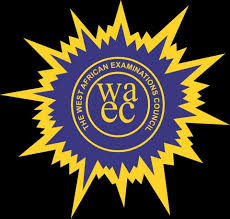The Importance of Writing the Junior WAEC Examination (BECE) in Nigeria
In Nigeria, the Junior WAEC Examination, also known as the Basic Education Certificate Examination (BECE), is a significant milestone for students in the educational system. This exam marks the transition from junior secondary school to senior secondary school, and it holds numerous advantages that extend beyond just academic assessment. Here are some key reasons why writing the Junior WAEC Examination is important for students in Nigeria.
Academic Benchmarking and Standardization
The Junior WAEC Examination provides a standardized benchmark for assessing students’ academic performance at the end of their junior secondary education. This standardization ensures that all students, regardless of their school or region, are evaluated based on the same criteria. It helps to maintain a consistent level of education across the country, allowing for a fair comparison of academic abilities.
Preparation for Senior Secondary Education
One of the primary purposes of the Junior WAEC Examination is to prepare students for the rigors of senior secondary education. By sitting for this exam, students are introduced to a more structured and formalized testing environment, which helps them develop the necessary skills and mindset for future academic challenges. This preparation is crucial as it lays a solid foundation for their subsequent studies.
Assessment of Knowledge and Skills
The BECE serves as a comprehensive assessment of the knowledge and skills students have acquired during their junior secondary school years. It covers a wide range of subjects, including Mathematics, English, Basic Science, Social Studies, and more. This holistic assessment helps to identify students’ strengths and weaknesses, providing valuable feedback for both students and educators.
Eligibility for Senior Secondary School Admission
Successful completion of the Junior WAEC Examination is a prerequisite for admission into senior secondary schools in Nigeria. The results of this exam are used by schools to determine eligibility and placement, ensuring that students are adequately prepared for the advanced curriculum they will encounter. This makes the BECE a critical step in a student’s educational journey.
Motivation and Goal Setting
The prospect of writing the Junior WAEC Examination can serve as a significant motivational factor for students. Knowing that their performance will have a direct impact on their academic future encourages them to set goals, work diligently, and stay focused on their studies. This sense of purpose and direction is essential for academic success and personal development.
Parental and Community Involvement
The BECE often prompts increased involvement from parents and the wider community in students’ education. Parents become more engaged in their children’s academic progress, offering support and encouragement. Additionally, communities may organize study groups or tutoring sessions to help students prepare, fostering a collaborative environment that benefits all learners.
Career Guidance and Counseling
The Junior WAEC Examination results can also play a role in career guidance and counseling. Educators and counselors can use the results to advise students on potential career paths, aligning their academic strengths with future opportunities. This early guidance is invaluable in helping students make informed decisions about their education and career aspirations.
Development of Examination Skills
Writing the Junior WAEC Examination helps students develop essential examination skills such as time management, critical thinking, and problem-solving. These skills are not only crucial for academic success but also for various aspects of life beyond school. The experience of preparing for and taking a major exam teaches students discipline and resilience.
Recognition and Certification
Upon successful completion of the Junior WAEC Examination, students receive a certificate that formally recognizes their achievement. This certification is an important academic credential that can be presented when applying for senior secondary schools, scholarships, and other educational opportunities. It serves as a testament to their hard work and dedication.
National Educational Development
On a broader scale, the BECE contributes to the overall development of the national educational system. By maintaining high standards and ensuring consistency in student evaluation, the exam helps to improve the quality of education across Nigeria. This, in turn, supports the country’s efforts to produce well-educated and skilled individuals who can contribute to national development.
In conclusion, the Junior WAEC Examination is a pivotal aspect of the Nigerian educational system. It not only assesses students’ academic abilities but also prepares them for future challenges, motivates them to strive for excellence, and plays a crucial role in their educational and career development. Writing the BECE is a step that opens doors to numerous opportunities, making it an essential experience for every student in Nigeria
